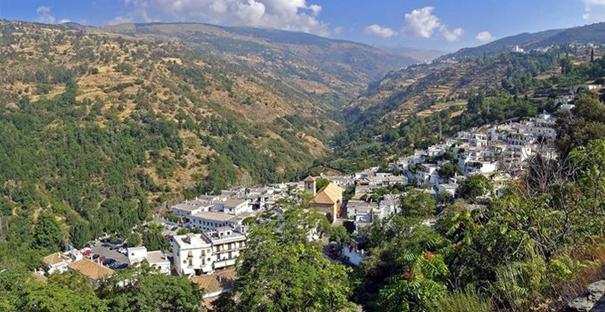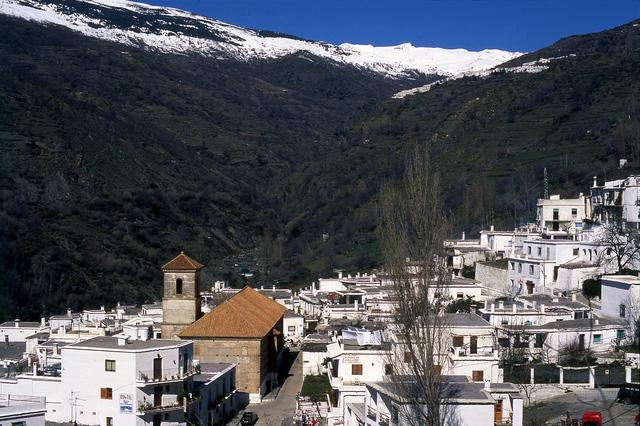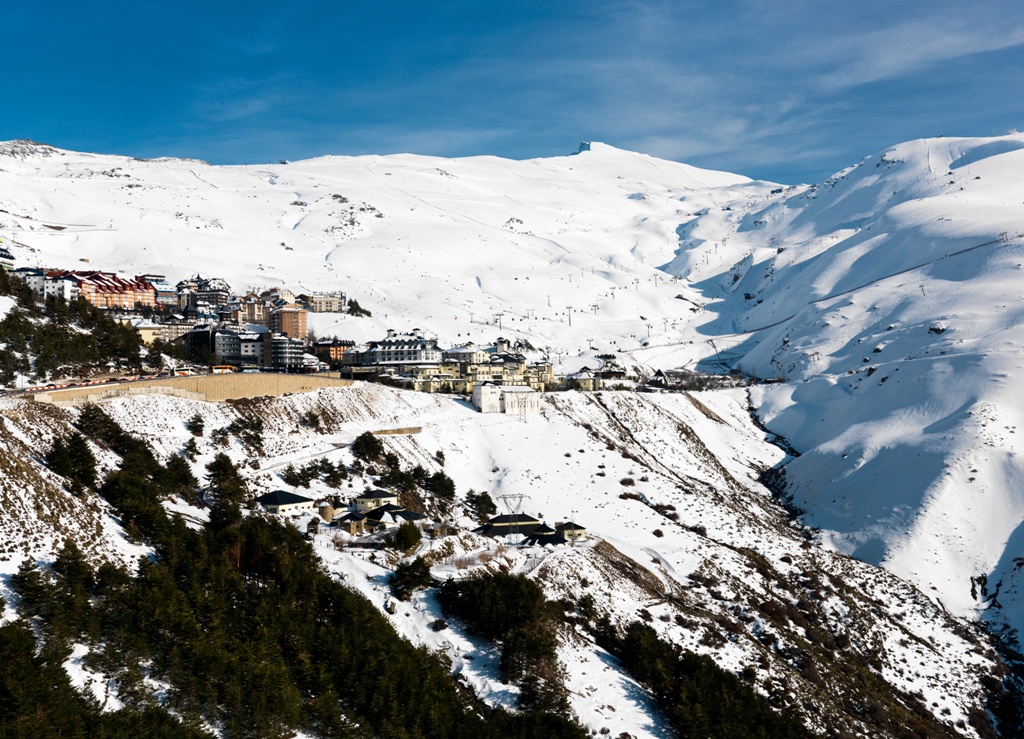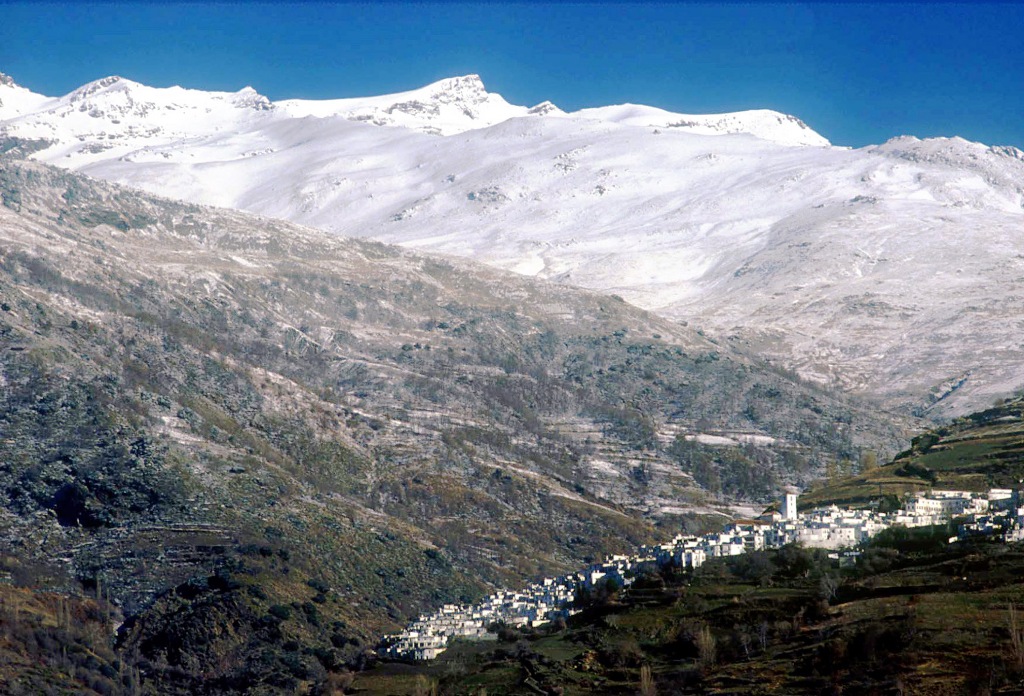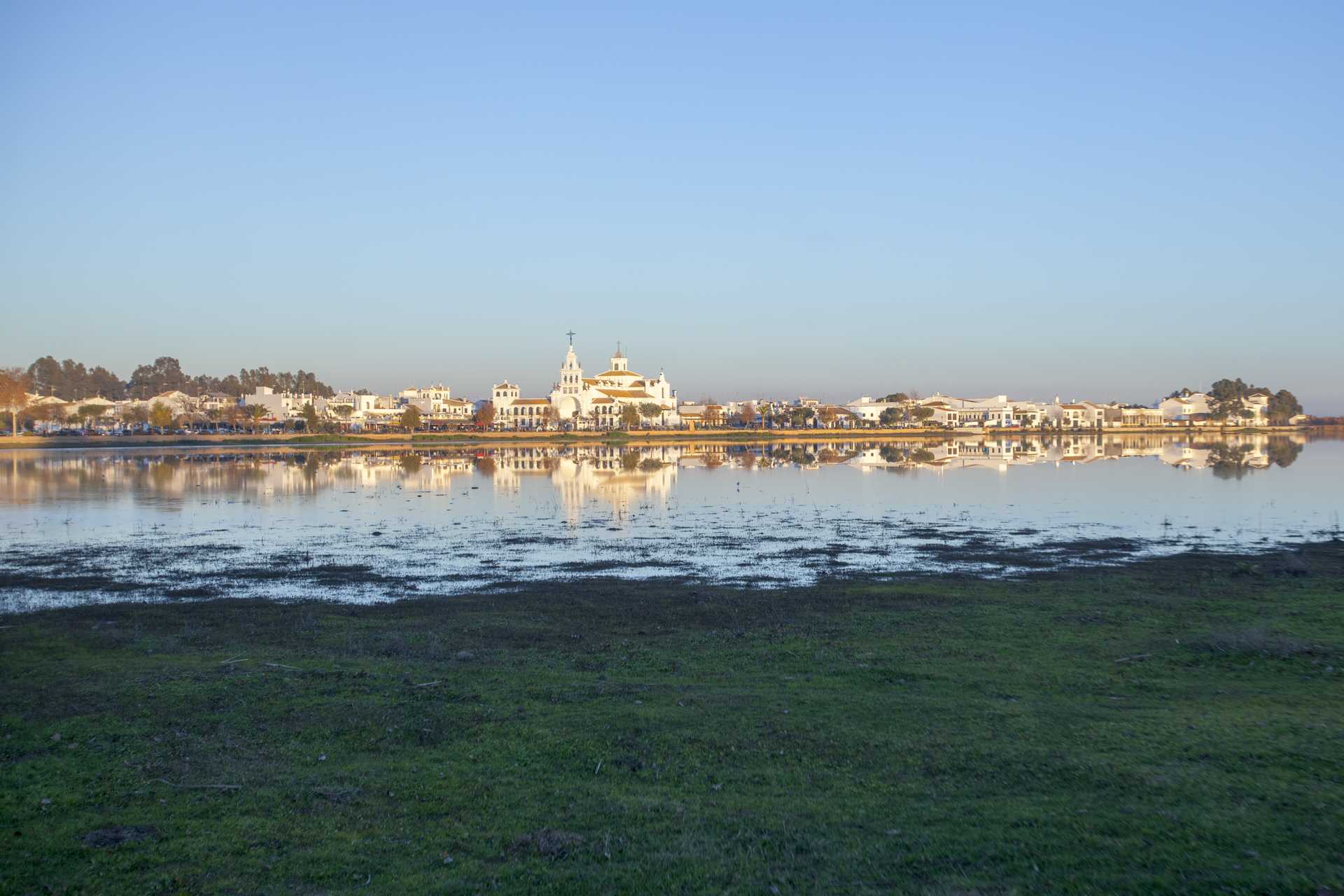Pampaneira

The Barranco del Poqueira is one of the most popular places visited in the province of Granada. This amazing cliff in the south face of Sierra Nevada, forms a part of the Natural Park and in its dramatic fall from the Veleta Peak, it comprises three villages of great beauty: Capileira, Bubión and Pampaneira.
The name of this village originates from the Latin word pampinus, meaning "vine shoot", which refers to the luxuriance of its lands watered by the river Poqueira. Apart from being considered a historic-artistic centre, it has been granted many awards such as the First Provincial Prize for the Embellishment of Villages (1976), and twice (1977 and 1978) the National Tourism Award for the Embellishment and Improvement of Spanish Villages.
In this municipality there is also room for meditation and retirement in the Buddhist monastery of O Sel Ling.
In the heart of the Alpujarra, this unique village, natural intermediary between the Mediterranean coast and Sierra Nevada, towered by the highest mountain peaks in the peninsula, is, without doubt, a place to visit in the Alpujarra itinerary.
History
The name of this village originates from the Latin word pampinus, meaning "vine shoot", which refers to the luxuriance of its lands watered by the river Poqueira.
The history of the area that because of its geographical isolation has developed its own characteristic culture. It had its moment of splendour under the Arab Andalusian period when all of the Alpujarra was an important agricultural centre, specializing in silk production.
After the Christian re-conquest of Granada in 1492 by the Catholic Monarchs, the population suffered to an unbearable extreme and thus, in 1568, Hernando de Córdoba y Válor, a rich landowner proclaimed himself as Abén Humeya, uprising against Phillip ll, causing a general revolt amongst the Moors from all over the kingdom of Granada.
Internal disagreements amongst the Moors, who in 1569 assassinated Abén Humeya, allowed Don Juan de Austria to terminate this revolt.
The Moors were eventually expelled in 1609.
The area that is now inhabited dates back to the 16th century, when it was repopulated by families from the kingdoms of León and Galicia.


